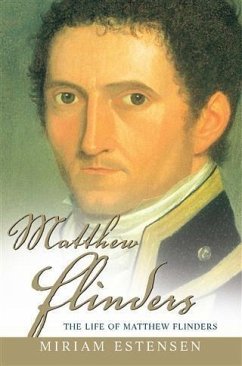
Matthew Arnold (eBook, ePUB)
Enriched edition. Exploring the Victorian Legacy of a Poet and Critic
Kommentar: Ellington, Trevor / Redaktion: Good Press

PAYBACK Punkte
0 °P sammeln!
In "Matthew Arnold," George Saintsbury delivers a profound and insightful examination of one of the most significant figures of Victorian literature. This work combines biographical elements with a critical analysis of Arnold's poetic and critical contributions, employing a clear and articulate literary style that invites readers into the complexities of Arnold's thought. Saintsbury contextualizes Arnold within the broader literary landscape of the time, addressing themes such as culture, society, and the tension between tradition and modernity, thus offering a comprehensive portrait of Arnold...
In "Matthew Arnold," George Saintsbury delivers a profound and insightful examination of one of the most significant figures of Victorian literature. This work combines biographical elements with a critical analysis of Arnold's poetic and critical contributions, employing a clear and articulate literary style that invites readers into the complexities of Arnold's thought. Saintsbury contextualizes Arnold within the broader literary landscape of the time, addressing themes such as culture, society, and the tension between tradition and modernity, thus offering a comprehensive portrait of Arnold's enduring legacy. Saintsbury himself was a prominent literary critic, scholar, and historian whose extensive knowledge of the English literary canon greatly influenced his perspective on Arnold. His background in classical literature and deep understanding of the Victorian milieu enabled him to engage with Arnold's works on a level that transcends mere critique. This biographical approach reflects his admiration for Arnold's roles as both poet and social critic, revealing how his own experiences shaped his readings and interpretations. This book is essential for anyone interested in the interplay of poetry and social commentary in the 19th century, making it a valuable resource for students and enthusiasts alike. Saintsbury's careful analysis not only illuminates Arnold's texts but also enhances the reader's appreciation of the cultural currents that shaped them. In this enriched edition, we have carefully created added value for your reading experience: - A succinct Introduction situates the work's timeless appeal and themes. - The Synopsis outlines the central plot, highlighting key developments without spoiling critical twists. - A detailed Historical Context immerses you in the era's events and influences that shaped the writing. - A thorough Analysis dissects symbols, motifs, and character arcs to unearth underlying meanings. - Reflection questions prompt you to engage personally with the work's messages, connecting them to modern life. - Hand-picked Memorable Quotes shine a spotlight on moments of literary brilliance. - Interactive footnotes clarify unusual references, historical allusions, and archaic phrases for an effortless, more informed read.
Dieser Download kann aus rechtlichen Gründen nur mit Rechnungsadresse in A, B, BG, CY, CZ, D, DK, EW, E, FIN, F, GR, H, IRL, I, LT, L, LR, M, NL, PL, P, R, S, SLO, SK ausgeliefert werden.













